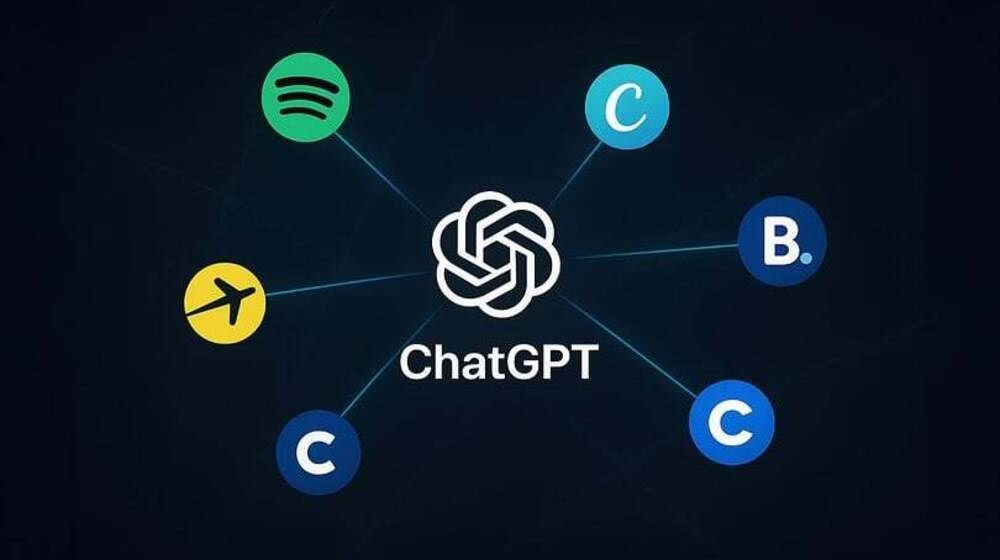OpenAI expands ChatGPT with new developer tools and third-party app integration, marking one of the most significant updates in its history. At the DevDay event held on Monday, CEO Sam Altman revealed that ChatGPT now has over 800 million weekly users—a milestone that highlights the platform’s rapid growth and widespread adoption. With this expansion, OpenAI aims to transform ChatGPT from a simple chatbot into a full-fledged app ecosystem.
Turning ChatGPT into a Full App Ecosystem
As OpenAI expands ChatGPT, the company introduces a software development kit (SDK) that allows developers to build and integrate apps directly within the platform. This means users will soon be able to interact with third-party applications inside ChatGPT through natural language commands.
For example, a user can ask Spotify to create a personalized playlist or request Zillow to show available homes for sale—without ever leaving the ChatGPT interface. The SDK enables developers to create experiences that are interactive, adaptive, and tailored to each user’s preferences.
According to Altman, this new capability will “enable a new generation of apps that are interactive, adaptive, and personalized.” This move positions ChatGPT as not just a chatbot, but a central hub for smart digital interactions.
A New Marketplace for Developers
As OpenAI expands ChatGPT, developers will soon be able to submit their own apps to the platform. OpenAI plans to open submissions later this year, giving developers the chance to showcase and monetize their creations. This includes a built-in commerce system that allows users to make purchases directly within ChatGPT.
Much like traditional app stores, ChatGPT will also feature a public directory where users can explore available apps. Applications that meet higher design and performance standards will receive special placement, improving their visibility among millions of users.
This approach not only supports developers but also enhances the user experience by surfacing the most innovative and reliable apps.
Why This Expansion Matters
The fact that OpenAI expands ChatGPT into an app-driven platform is a massive step toward the future of AI integration. By combining conversation and computation in one place, OpenAI is creating a system that blurs the line between a chatbot, a search engine, and an operating system.
It’s also a signal to other tech giants. As OpenAI builds an app ecosystem around ChatGPT, it directly competes with established marketplaces like Apple’s App Store and Google Play—but within an AI environment. This could redefine how users interact with digital services, relying less on apps and more on AI-driven experiences.
User Privacy and Data Control
OpenAI’s expansion of ChatGPT also focuses heavily on user privacy and data transparency. When users interact with a third-party app for the first time, ChatGPT will prompt them to choose what data to share. This ensures users maintain full control over their personal information.
This feature is particularly important as the platform becomes more connected to external services, ensuring that security and privacy remain top priorities even as functionality expands.
Developer Opportunities and Monetization
With OpenAI expanding ChatGPT into a developer-friendly ecosystem, new business opportunities are emerging. Developers will be able to monetize their applications directly within ChatGPT, offering paid features, premium integrations, or subscription-based tools.
This move could create a thriving AI economy within ChatGPT—where creators, businesses, and users interact in one streamlined space. The combination of advanced AI tools, natural language processing, and commerce integration could set a new standard for how digital platforms operate.
The Future of ChatGPT and AI Interaction
As OpenAI expands ChatGPT, it’s clear that the company envisions a future where conversational AI is not just reactive but proactively functional. Users won’t just ask questions—they’ll perform tasks, book appointments, shop, learn, and collaborate directly through ChatGPT.
The integration of third-party apps represents the next evolution in AI technology—moving from a static chatbot to a dynamic AI assistant capable of real-world utility. This could fundamentally reshape how individuals and businesses engage with software in daily life.
The announcement that OpenAI expands ChatGPT into a platform supporting third-party apps and developer tools represents a major leap forward in AI development. With over 800 million weekly users, ChatGPT is already one of the most widely used AI tools globally—and this new direction could multiply its impact even further.
As OpenAI continues to innovate, the boundaries between artificial intelligence, applications, and human interaction are fading fast. This update doesn’t just enhance ChatGPT—it redefines the future of AI-powered digital ecosystems.



